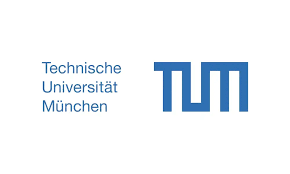Engineering Masters in Germany (2025 Top Programs)

Contents
Germany is globally recognized for its engineering excellence, making it a top destination for international students pursuing a Master's in Engineering. With a strong legacy in the automotive and construction industries, students studying in Germany will have the opportunity to learn from leading experts and gain valuable hands-on experience in their field.
This guide will help you navigate tuition-free courses, types of engineering degrees available, admission requirements, and alternative degree options.
Tuition-Free Master's Programs in Engineering
One of the most appealing aspects of studying in Germany is the availability of tuition-free courses at public universities. As an international student, you can benefit from high-quality education without significant tuition fees.
- Public Universities: Most public universities in Germany do not charge tuition fees for master's programs in engineering. However, there is usually a small semester fee, ranging from €100 to €350, which covers administrative costs and public transportation.
- Living Costs: While tuition is free, you should budget for living expenses, typically ranging from €800 to €1,200 per month. This includes accommodation, food, health insurance, and other personal expenses.
- Scholarships: Explore scholarship opportunities from organizations like DAAD (German Academic Exchange Service) to help cover living expenses.
Which Engineering Program Is Right for You?
Germany offers a diverse range of master’s degrees in engineering, each catering to different interests and career aspirations. Understanding these options can help you choose the path that best aligns with your skills and goals. Here is a list of Master’s engineering degrees you can choose from:
Mechanical Engineering
- Overview: A master’s in Mechanical Engineering focuses on designing, analyzing, and manufacturing mechanical systems. It covers a broad range of topics, including thermodynamics, fluid dynamics, materials science, and structural analysis.
- Who Should Pursue It: This degree is ideal for students who enjoy working with machines, engines, and tools. If you have a strong interest in understanding how things work and enjoy solving complex problems related to mechanics and dynamics, mechanical engineering could be a perfect fit.
- Career Opportunities: Graduates can work in various industries, including automotive, aerospace, manufacturing, and energy.
Civil Engineering
- Overview: A master’s of Civil Engineering involves the planning, design, and construction of infrastructure projects such as roads, bridges, buildings, and water systems. This field emphasizes structural engineering, transportation engineering, and urban planning.
- Who Should Pursue It: If you are passionate about building and shaping the physical environment and have a strong interest in architecture, design, and construction, civil engineering might be right for you.
- Career Opportunities: Civil engineers can work for construction firms, government agencies, and consulting firms, engaging in projects that impact society's infrastructure.
Electrical Engineering
- Overview: An Electrical Engineering master's degree focuses on studying and applying electricity, electronics, and electromagnetism. This field covers circuit design, control systems, telecommunications, and power generation.
- Who Should Pursue It: Students with a keen interest in electronics, electrical systems, and technology development are well-suited for this degree. Consider electrical engineering if you enjoy working with circuits and want to innovate in fields like renewable energy or telecommunications.
- Career Opportunities: Electrical engineers are in demand across industries such as consumer electronics, telecommunications, energy, and automation.
Industrial Engineering
- Overview: A master’s in Industrial Engineering combines engineering principles with business management to optimize processes, systems, and organizations. This field focuses on improving efficiency, productivity, and quality in manufacturing and service industries.
- Who Should Pursue It: This degree is suitable for individuals interested in both engineering and business. If you enjoy problem-solving, process optimization, and working on improving operations, industrial engineering may be the right choice.
- Career Opportunities: Industrial engineers often work in manufacturing, logistics, healthcare, and consulting, focusing on improving systems and processes.
Computer Engineering
- Overview: The Computer Engineering master’s degree blends computer science with electrical engineering, focusing on designing and developing computer systems and hardware-software integration.
- Who Should Pursue It: If you have a passion for technology, computers, and programming and are interested in developing hardware and software solutions, computer engineering might be the right path for you.
- Career Opportunities: Graduates can pursue careers in tech companies, hardware design, software development, and IT services.
Chemical Engineering
- Overview: A Chemical Engineering master’s degree involves applying chemistry, physics, and biology to design processes that convert raw materials into valuable products such as chemicals, fuels, and pharmaceuticals.
- Who Should Pursue It: Students with a strong interest in chemistry and a desire to apply scientific principles to real-world processes are well-suited for this degree.
- Career Opportunities: Chemical engineers work in industries like pharmaceuticals, petrochemicals, food processing, and environmental protection.
No study programs in top universities found for this subject
Environmental Engineering
- Overview: A master’s in Environmental Engineering focuses on developing sustainable solutions to environmental challenges, including pollution control, waste management, and resource conservation.
- Who Should Pursue It: If you are passionate about protecting the environment and want to work on projects that promote sustainability, this degree could be a great fit.
- Career Opportunities: Environmental engineers work with government agencies, NGOs, and private firms to address environmental issues and develop sustainable practices.
By understanding these different types of engineering degrees and considering your interests and career goals, you can decide which path is right for you in Germany's vibrant engineering landscape. Explore all engineering and other study programs in Germany to find the one that fits your future plans.
Admission Requirements for a Master's in Engineering Degree
Understanding the admission requirements can help you have a smooth application process, so it is important to know important dates and application times. If you're just beginning your research or want a broader view of the application process, scholarships, or student life, check out our complete guide to studying in Germany.
Here’s what you need to know:
University Degree Requirements
- Bachelor's Degree: You must have a relevant bachelor's degree in engineering or a closely related field. Some programs may require specific coursework in mathematics or physics. Depending on your choice of engineering degree, you would have to show relevant educational experience.
- Entrance Exams: Some universities offer entrance exams so that students can prove their level of expertise even if their previous education is not in a field similar to their master’s of choice.
Language Requirements
- German Proficiency: If your program is taught in German, you must demonstrate proficiency through tests like TestDaF or DSH.
- English Proficiency: For English-taught programs, tests like TOEFL or IELTS are required. Ensure you check the specific language requirements of your chosen program.
If you opt for a degree program conducted in both languages, you will need to prove your language skills in German and English. Similarly, if your program is entirely in English, you only need to show English proficiency.
Work Experience Requirements
- Relevant Experience: Some programs may prefer or require work experience, especially for specialized fields like industrial engineering. Internships or relevant projects can strengthen your application.
Remember
Each university has a unique admissions process, so you must check the specific requirements on the university's website and be well-prepared for your application.
Admission Deadlines for Master's in Engineering
Timing is crucial when applying for a master's program in Germany. Here are the typical deadlines:
- Winter Semester: The primary intake for most programs, with deadlines typically from mid-December to late March.
- Summer Semester: A secondary intake with fewer programs available. Deadlines generally fall between mid-May and late September.
- Check Specific Dates: Always verify the specific application deadlines for each university, as they can vary.
If you're still uncertain about which university to choose and want a comprehensive overview of the top engineering universities in Germany, our guide is exactly what you need!
Master's in Engineering Programs in English
Many universities in Germany offer engineering programs taught in English, making them accessible to international students:
Alternative Degree Options for Engineering Students
Suppose a master's in traditional engineering does not sound like the right fit for you, and you are interested in using your engineering skills in a more creative way. In that case, you can explore many alternative fields of study. Here are some options you can choose if you want a broad role after graduation:
Robotics Degrees
Sustainable Engineering Degrees
FAQs
Do I need a blocked account to study Engineering in Germany?
Yes, most international students need a blocked account to study in Germany. A blocked account is a particular bank account with a predetermined amount of money to cover your living expenses for one year in Germany. Expatrio's value package can help you set up your blocked account, health insurance, and current bank account to streamline your application process.
Is Germany good for a Master's in Engineering?
Yes, Germany is an excellent choice for a Master's in Engineering due to its world-class universities, strong emphasis on research and innovation, and numerous tuition-free programs at public universities. The country is a global leader in engineering and technology, providing excellent career opportunities for graduates.
How much does it cost to do a Master's in Engineering in Germany?
Most public universities in Germany offer tuition-free master's programs in engineering, although students pay a semester fee of €100 to €350. Private universities charge tuition fees ranging from €5,000 to €20,000 per year.
Every university differs in their tuition costs so please make sure you check your particular university's requirements.
What is the salary of an MS Engineer in Germany?
The average starting salary for MS Engineering graduates in Germany ranges from €50,000 to €65,000 per year. With experience, salaries can increase to between €70,000 and €90,000 or more, depending on the industry and location.
How long is an Engineering Master's in Germany?
A typical Master's in Engineering in Germany takes about two years to complete, equivalent to four semesters. Some programs may vary slightly in duration based on specialization or specific university requirements.
This might also be of interest to you

Summer Semester in Germany: Your Complete Guide for April 2026 Intake
Thinking about studying in Germany but missed the October deadline? The summer semester might be your perfect opportunity. While most international...

Why More Indian Students Are Choosing Germany Over the USA
In the last decade, Germany has become one of the fastest-growing study destinations for Indian students. While the USA once dominated the dreams of...

Top Courses for Indian Students in Germany vs USA (2025 Guide)
Studying abroad is a dream for many Indian students, but choosing the right country and course can be confusing. The United States and Germany are...

Germany vs USA: Work After Study Options for Indian Students (2025 Guide)
When you're choosing where to study abroad, it's not just about the university name or the country hype. For many Indian students, the big question...

5 Cheapest Countries to Study Abroad for Indian Students (2026 Guide)
Studying abroad doesn't have to drain ₹40-60 lakhs from your family's savings. Five countries offer world-class education for under ₹10 lakhs per...

Germany vs USA: Which Is Better for Indian Students in 2025?
Choosing where to study abroad is a big deal, especially for Indian students. You're not just picking a country; you're deciding to move far from...

Germany Welcomes Displaced Harvard Students: A New Academic Home
In a move that’s left thousands of students in shock, the U.S. government has revoked Harvard University’s certification to enroll international...





















